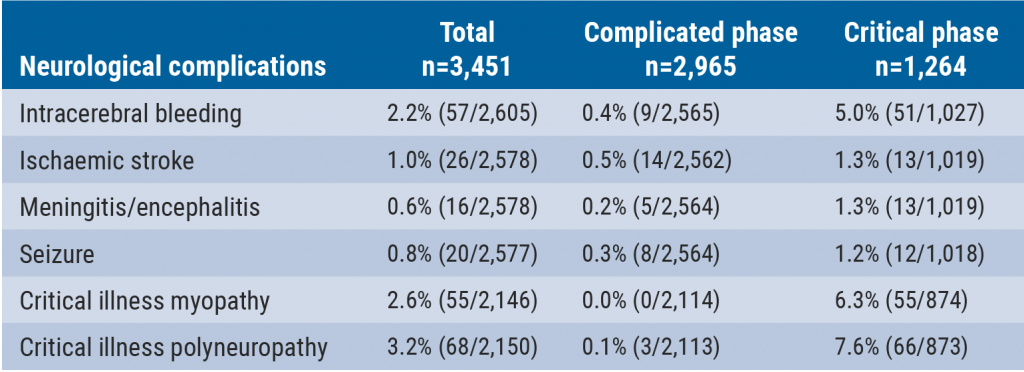Dr Nirit Lev (Rabin Medical Center, Israel) and colleagues aimed to assess whether women with migraine have a higher risk of developing pregnancy and post-partum complications than women without migraine, and to evaluate their characteristics and medical needs [1]. Mode of delivery, medical and obstetric complications per trimester, and use of medications throughout the pregnancy were studied. A total of 12,222 women had a diagnosis of migraine (1,576 with aura), though Dr Lev warned that migraine is not always diagnosed. The remaining 132,880 women served as control group.
In the migraine group, there was an increased risk of high-risk admissions:
- 6% in the control group;
- 6.9% in the migraine group without aura (P<0.0001 vs controls);
- 8.7% in the migraine group with aura (P<0.0001 vs controls and P=0.03 vs migraine without aura).
The risk of obstetric complications was higher in the total migraine group, this included the risk of gestational diagnosis of diabetes, hyperlipidaemia, and diagnosis of a psychiatric disorder (P<0.0001 for all). The risk of pre-eclampsia and stroke was significantly higher as well. Dr Lev noted that pregnant women with migraine sought more medical consultations and consumed more medication during pregnancy. The use of epidural anaesthesia was significantly higher in women with migraine without aura (45.7%) and with aura (47.5%) than in women without migraine (40.5%; P<0.0001). Women with migraine also tended to have laboratory examinations post-partum more often. Dr Lev recommended a specialised neurological follow-up to women with migraine during pregnancy and the post-partum period.
- Lev N, et al. Migraine in pregnancy and post-partum epidemiological and clinical characteristics. OPR-066, EAN 2021 Virtual Congress, 19–22 June.
Copyright ©2021 Medicom Medical Publishers
Posted on
Previous Article
« Occipital nerve stimulation in drug-resistant cluster headache Next Article
Erenumab superior to topiramate for migraine treatment »
« Occipital nerve stimulation in drug-resistant cluster headache Next Article
Erenumab superior to topiramate for migraine treatment »
Table of Contents: EAN 2021
Featured articles
Letter from the Editor
COVID-19
First evidence of brainstem involvement in COVID-19
Cognitive/behavioural alterations persistent after COVID-19
Neural base of persistent hyposmia after COVID-19
Neurological symptoms and complications of COVID-19 affect outcomes
Cerebrovascular Disease
Intracerebral haemorrhage only slightly increases mortality in COVID-19 patients
Stroke with covert brain infarction indicates high vascular risk
Expanding precision medicine to stroke care
Dexamethasone not indicated for chronic subdural haematoma
Cognitive Impairment and Dementia
Severe outcomes of COVID-19 in patients with dementia
Promising diagnostic accuracy of plasma GFAP
Sex modulates effect of cognitive reserve on subjective cognitive decline
Hypersensitivity to uncertainty in subjective cognitive decline
Epilepsy
Minimally invasive device to detect focal seizure activity
‘Mozart effect’ in epilepsy: why Mozart tops Haydn
Migraine and Headache
Factors associated with decreased migraine attack risk
Pregnant migraine patients at higher risk of complications
Occipital nerve stimulation in drug-resistant cluster headache
Rhythmicity in primary headache disorders
Multiple Sclerosis and NMOSD
Typing behaviour to remotely monitor clinical MS status
Alemtuzumab in treatment-naïve patients with aggressive MS
No higher early MS relapse frequency after stopping ponesimod
Good long-term safety and efficacy of inebilizumab in NMOSD
Neuromuscular Disorders
Inability to recognise disgust as first cognitive symptom of ALS
Pathogenic T-cell signature identified in myasthenia gravis
Parkinson’s Disease
Levodopa-carbidopa intestinal gel in patients with advanced PD
New Frontier – Navigated Transcranial Ultrasound
Exploring the possibilities
Related Articles

August 18, 2021
Rhythmicity in primary headache disorders
August 18, 2021
Pregnant migraine patients at higher risk of complications
© 2024 Medicom Medical Publishers. All rights reserved. Terms and Conditions | Privacy Policy
HEAD OFFICE
Laarderhoogtweg 25
1101 EB Amsterdam
The Netherlands
T: +31 85 4012 560
E: publishers@medicom-publishers.com

